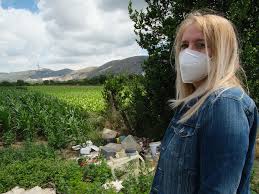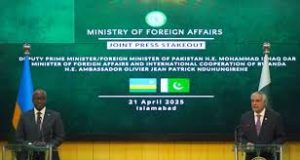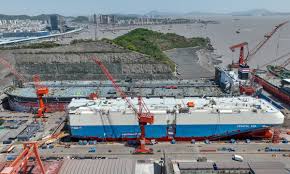Italy: Carmen Medaglia’s battle against waste and injustice the Land of Fires

Naples: The acrid smell stays in your nostrils and sticks to your clothes. The pile of rubbish sits at the side of a quiet country road, not far from Caserta. The surrounding earth is black, burned.
By contrast, the bright yellow colour of the surrounding farmland is almost blinding. “I’ve learnt to recognise the rubbish,” says Carmen Medaglia as she walks along, scouring the ground. “Last week there was textile waste here, today it’s shoes”.
It takes the patience of a saint to keep fighting in a land so frustrated by injustice. Medaglia isn’t originally from here but the Caserta province has influenced her profoundly, including her accent. Her erratic driving through the streets of San Nicola la Strada is perfectly coherent with her natural yet dramatic portrayal of the surrounding countryside.
A few metres behind the guardrail is Lo Uttaro, one of the country’s largest illegal landfills. Over the past thirty years, decommissioned tuff quarries have been used as dumps for municipal and industrial solid waste from all over the place. It is estimated that there are over six million cubic metres of waste buried here.
It is estimated that there are over six million cubic metres of waste buried here
“They shun me because they always see me here”. Carmen is a “civil observer“. She’s part of a group of activists who oversee the area and participate in technical meetings with the judicial authorities – the magistrature – to highlight critical cases of fly-tipping. “It’s constant. Constant. If you look over the other side you’ll find more rubbish. Look at all these shoes – the activist stops to examine another pile of rubbish next to a cornfield –. This is one of Italy’s biggest dumpsites and if it goes up in flames, we’ll all go up in flames. We need to leave!”.
The Land of Fires (terra dei fuochi in Italian) is the name that was given to this region starting from 2000. Located between the provinces of Naples and Caserta, it has been overrun by illegal fly-tipping and toxic fires, with dramatic consequences. According to data from the fire department, 428 fires took place between January and August 2019, following a sharp decline in the number of such events. The exact amount of waste dumped here is unknown. The most credible estimate comes from Legambiente (Italy’s most prominent environmental organisation), which published a survey in 2013 based on over 82 inquiries into waste trafficking since 1991. The report refers to over 10 million tonnes of waste, equal to about 410,000 lorries-full of rubbish.
People have felt the impact on their own skin, although data is often contradictory. While a 2008 report by the government’s commission handling the waste emergency claimed that the incidence of tumours and diseases caused by fires and fly-tipping is limited, a 2015 report by the Italian National Institute of Health in collaboration with northern Naples’ public prosecutor office found that 354,845 people, 37 per cent of the population, in the affected municipalities live within 100 metres of at least one illegal dumpsite.
At least 37 per cent of the population in the affected municipalities live within 100 metres of at least one illegal dumpsite
“We’re dismissed as being unlucky or we’re mocked. Even by institutions”. While activism is the first line of defence for common citizens, Carmen and others like her are often viewed with distrust. “You can’t blame people for protesting – there are mothers who have lost their children. What should we be focusing on? On respecting the pain of mothers in the Land of Fires”.
Though this place is infamous because of the ecological emergency, its past was different. In Ancient Roman times it was known as Campania Felix (fortunate, happy countryside, ed.). It was rich, luxuriant and crops were plentiful. Throughout streets and villages there are traces of Roman villas and milestones marking ancient roads. This cultural heritage, like the region’s inhabitants, is suffering due to stereotypes, generalisations and carelessness. And it’s hard to break the cycle.
“Some claim the Land of Fires doesn’t even exist,” Carmen continues. “In five years, we haven’t even been able to start composting. A waste management cycle still hasn’t been adopted, and the only waste-to-energy plant is the one in Acerra“.
The Campania region produces approximately 2.57 million tonnes of urban waste every year. Only 53 per cent of this is sorted and recycled. The remainder of mixed waste is disposed of in the incinerator in Acerra. However, while it is one of Europe’s largest plants, it often struggles to keep up with demand and the region is forced to export about 350,000 tonnes of excess rubbish. A real waste of money.
When the system struggles, as it did during the notorious 2007/2008 waste management crisis that led to the Acerra plant being built, waste piles up before it’s even collected. This leads to malcontent, health risks and eventually to arson. Many of the resulting fires are toxic and they’re often started by the Camorra, Campania’s infamous crime syndicate.
The crisis has led politicians and administrators to repeatedly propose building a new incinerator. This idea has been wholly rejected by organisations involved in waste management, whose aim is the adoption of an efficient waste cycle, focused on composting. “In the whole of Italy, we’re paying the highest waste taxes and we’re the most stigmatised. We’re being cheated, and beaten for it”.
Carmen has strong opinions about the incinerator. “It’s not that we don’t want the plant, we just don’t know how it would be managed. We’ve been burned by years of bad politics and corruption”. And Camorra. The link between waste disposal and organised crime is strong here. In Acerra, the Pellini brothers were composting and cement magnates: their companies would pour fake compost on farmlands, claiming it was real fertiliser. Thanks to activists’ efforts, the two entrepreneurs were arrested and sentenced to seven years in prison.
There are a myriad cases and inquiries on the issue. On textile waste, for example. This July, a vast operation by the Guardia di Finanza law enforcement agency uncovered and dismantled the industrial waste business. “Just for transporting waste from Tuscany, I would make 700 million lira (around 415,000 US dollars) a month. In Campania, I made 10 billion lira (over 6 million dollars) every year just on municipal solid waste. And then there was toxic waste trafficking, hidden in among household waste. There was no end to it, and I would make 5 million lire (more than 300,000 dollars) on each load. I gave the clans 10 lire (0.006 dollars) per kilogramme, but I’d cheat them on weight and deliveries. Every day I’d fill up thirty lorries: that’s something like 150 million lire (over 90,000 dollars) every single day”. These are the words of Gaetano Vassallo, known as the “waste minister of the Casalesi” (a Camorra clan operating in the Caserta region) and a pentito, a former criminal now cooperating with the justice system.
These stories also reveal the links between organised crime and institutions. Although most people still live, and fight, on the right side of the law, the distance between the two sides is shrinking. According to data from the OpenPolis Foundation, between 1991 and 2020 there were over 110 cases of criminal infiltration in municipal councils in Campania, which had to be disbanded. 97 of these cases were in the provinces of Caserta and Naples.
This is not a fair, even playing field. Several factors and economic assets are closely interlinked, almost inextricably so. There’s waste, of course, but also construction, agriculture and livestock farming. But Carmen isn’t alone. For every action, there’s an equal, opposite reaction – and the provinces of Naples and Caserta are no exception. Organisations and activists are working hard to reject this narrative. From Acerra to Scampia, through Caserta and San Nicola la Strada, to the coast, they are this land’s first line of defence. They have taken on this huge responsibility and will keep demanding justice, and fighting for a better future.





